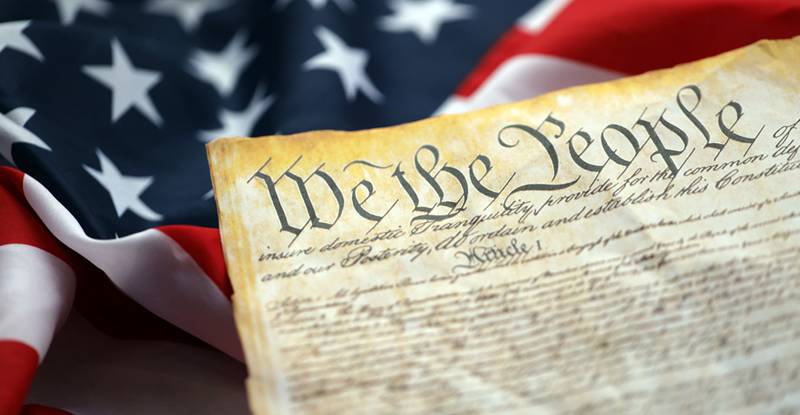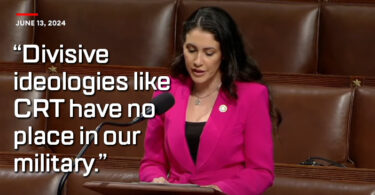By Casey Chalk | American Mind
At least on paper, DEI in the federal government is dead.
On the very first day of his second presidency, Donald Trump issued a presidential action, “Ending Radical And Wasteful Government DEI Programs And Preferencing,” ending all diversity, equity, inclusion, and accessibility “mandates, policies, programs, preferences, and activities in the Federal Government, under whatever name they appear.”
Employees in DEI-specific positions were fired; DEI positions and offices were dismantled; and DEI training programs, newsletters, and promotion criteria were scrapped.
But it would be beyond naive to think that just because federal agencies are not currently promoting DEI that their workforces do not still widely hold the opinions they were encouraged to hold. Thousands of current federal employees participated in or supported DEI programs.
Even those who might disagree were coerced to back DEI if they wanted to keep their jobs.
This means that the problem of getting rid of DEI in the federal government is multi-dimensional.
For one, the federal bureaucracy recruits from institutions that are overwhelmingly liberal in composition—with twice as many professors identifying as liberal than conservative—that ideologically forms each new generation of the workforce.
In his new excellent collection of essays, Seeking Truth and Speaking Truth: Law and Morality in Our Cultural Moment, Princeton professor Robert P. George argues that our top universities
“permit prevailing opinions on campus to harden into dogmas, dogmas that go largely unchallenged, leaving students with the false belief that there are in fact no disputes on these matters among reasonable people of goodwill. At the problem’s core is the toxic thing that provides an environment in which illiberalism flourishes, namely, the phenomenon of groupthink.”
Consider that the universities whose graduates most commonly end up in federal service—including George Washington, Georgetown, Michigan, Maryland, and American—are all redoubts of the Left.
For example, 95.45% of GW employees donated to Democratic candidates in the 2020 election. A 2020 Michigan Daily survey found that more than 75% of University of Michigan students described themselves as “somewhat liberal” or “very liberal.” None of this is particularly surprising.
Moreover, federal service is often a means of instituting a peculiar progressive political vision that is multinational, if not post-national, in nature.
In a recent Wall Street Journal article discussing cuts in the federal government, one employee explained, “For almost all of my colleagues, this was more than a job. We all got into this work not for power or wealth but to help women and girls and help advance equality globally.”
Note that nothing in that employee’s “mission statement” has to do with advancing U.S. policy objectives, which is, after all, the stated purpose of every federal agency.
There is also the fact that for decades federal agencies were given incredible latitude to push blatantly ideologically liberal initiatives.
Those involved in federal recruiting were told that although they could not make a hiring decision based on race or sex, they needed to help their respective federal agency boost their diversity hiring numbers, which effectively amounted to the same thing.
The tenets of critical theory—including its antagonism toward Western civilization, white men, and Christianity—became so central to federal service that conservative and Christian employees regularly found themselves confronted with fundamental questions of conscience regarding their employment.
There is then a great need to replace the overarching role DEI has played in the federal government for decades.
What is required is an alternative vision of public service, one that has a constitutionally informed narrative about American history and law.
Claremont’s Chris Ross has already hinted at what this would look like in his earlier piece at The American Mind. Ross noted the need for training that discourages federal employees from weaponizing government, and includes “heaping doses of civics and sound American political theory.” But much more can be done.
Federal agencies in the past have routinely brought in guest speakers to discuss various topics related to mission-specific topics. Speaker series should be introduced across the government that articulate the Framers’ constitutional understanding of the government’s role and its relationship to various agency missions, be it trade, education, immigration, or law enforcement.
For years, apparatchiks from HR and other offices flooded employees’ email inboxes with DEI-themed announcements and newsletters—why not turn the tables and designate officials to regularly inform the workforce on constitutional principles or U.S. history?
Promotion criteria could even be tethered to employees’ participation in these activities. If we expect medical professionals, lawyers, and educators to pursue continuing education for licensing, why shouldn’t the federal workforce be expected to do the same regarding the Constitution and the American civilization they are supposed to represent and serve?
I presume the same intellectuals and writers at Claremont and elsewhere who for many years have offered their incisive criticism of the federal workforce as deviating from constitutional norms would be more than happy to offer their services to reeducate Washington. These voices could be leveraged to offer their expertise to make the federal workforce into a truly pro-American vision of the Constitution and our national identity.
The anthropology of the Framers was “sober, realistic, and devoid of both excessive optimism and debilitating pessimism,” argues Daniel J. Mahoney in his new collection of essays, The Persistence of the Ideological Lie: The Totalitarian Impulse Then and Now. That anthropology is desperately needed in a federal workforce that has been grossly misinformed regarding the purpose and function of our government.
It’s undoubtedly true that many employees are simply waiting out the current administration, and no amount of catechesis will dissuade them of their woke beliefs.
But as recent elections have demonstrated, many are awakening from their ideological slumber, and need only a little exposure to something besides the groupthink they’ve been fed since their childhood.
“The increasingly obligatory alphabetical agitprops must be resisted and challenged,” writes Mahoney.
The opportunity to get rid of the DEI virus is here. We must take advantage of it.
_
Casey Chalk is a senior contributor at The Federalist, an editor at The New Oxford Review, and a 2024 Lincoln Fellow.
First published on American Mind
A proposed executive order for deprogramming bureaucrats (By Chris Ross | American Mind)
The Right has a rare opportunity to turn the tables on the administrative state—and also prepare the way for the great re-learning that America needs.
If you’re an American who works for a living, chances are good that between state and federal laws, insurance carrier requirements, and woke corporate Human Resources (HR) departments, you’ve had to endure “anti-harassment” trainings. These are delivered either in live group settings or via online modules that combine videos with quizzes, with only certain responses deemed acceptable.
Some of the content has amounted to forced indoctrination in leftism to a captive audience—which was, of course, the point.
I work for the Claremont Institute, which leaders on the Right have called “America’s most consequential think tank”—and which even frequent critics such as the New York Times have had to admit is “a nerve center of the American Right.” Yet even on this island of sanity, we have had to devote multiple hundreds of staff hours to watching training videos that explain what is and is not acceptable to say and do in California’s woke legal environment.
It would be much more appropriate to stop the ideological chicanery and instead require employees in federal agencies to be trained on how to not harass American citizens.
By executive order, the Trump Administration should require that all three million employees of the federal government participate in training focused on teaching them that weaponizing government and violating the people’s natural and civil rights is deeply unjust.
Even better, the trainings should include heaping doses of civics and sound American political theory to “deprogram” the cultish anti-Americanism that infects the Swamp.
Rather than making it torturous and boring like the woke HR trainings, we should make these modules fascinating and fun. We should use humor and pathos to disarm the audience, weaving the beautiful, inspiring story of America’s history and principles throughout. (I’ll explain the “we” part in a moment.)
Such trainings would serve several important purposes:
1. Correct Misunderstandings and Appeal to the Law: Many in the federal bureaucracy have been falsely led to believe that America was founded on oppression, because they were educated, employed, and trained in systems that were long ago captured by the radical Left. I’m sure I don’t need to spell out how this miseducation has helped co-opt so many federal employees into weaponizing the government for their own ends. But the federal workforce needs it spelled out. They need a mental reset of what constitutes good and bad behavior, and to know the corresponding rewards and punishments.
2. Lay the Groundwork for Restoring American Civic Knowledge and Patriotism. The trainings I propose would reach an audience of millions. Done well, they could attract an even broader audience by making them available online and promoting them to the general public. The trainings could be a tool to help Americans amend their historical and civic knowledge in preparation for America’s 250th birthday.
3. Help Unify Americans and Turn Adversaries into Friends. Many hardboiled Deep State types will reject the tenets of the trainings. But surely the story of America and its principles, told honestly and well, would win the admiration and allegiance of many who have never received a decent education in history and civics. This would in turn make the federal bureaucracy less recalcitrant toward their elected president and his political appointees. It would also contribute to uniting Americans around a shared understanding of our country’s heritage, principles, and civic duties.
4. Gum Up the Deep State’s “Resistance” Operations. The Deep State has used lawfare, “malicious compliance,” and a hundred other tactics to resist the legitimate use of executive power. Here is where the Trump Administration can play hardball in response.
- The trainings can be as long as is optimal, with additional remedial trainings for those whose history indicates a need for it.
- Employees in each department must complete the trainings before they can return to their regular duties.
- Department heads can time the trainings in each department in whatever way will prevent the most mischief against enacting the Trump Administration’s agenda. The most potentially troublesome legacy employees would be occupied with learning great things about America while key new hires—who could be exempted from the trainings for their first year or more—would plow ahead without interference. At the point where most administrations start to bog down, the Trump Administration can bog down the “resistance within.”
Now, let me explain what I meant by saying “we” earlier. Many alumni of the Claremont Institute’s educational fellowship programs (like OMB Director Russ Vought and State Department Director of Policy Planning Staff Michael Anton) currently serve in the Trump Administration.
The Institute has been planning to launch a modified version of our highly respected Publius Fellowship—the same one Vought and Anton attended—as an online class. Like the Publius Fellowship, it will be taught by some of the country’s top constitutional scholars and political theorists.
Our working title for the class is “The College Course You Never Took.” And we have a curriculum that could help get it up and running on an expedited basis.
Some will object about a word I used earlier: “deprogram.”
Hillary Clinton used the term in an October 2023 statement where she maintained that perhaps there should be a “deprogramming of the cult members” who still supported President Trump.
She was right about one thing: America is at a crossroads. Either America will be guided by constitutionalism and the natural rights principles of the Declaration of Independence or by the historicist understandings of the revolutionary Left. They are diametrically opposed.
Only the former should be recognized as the legitimate object of loyalty for our public servants.
_
Chris Ross is the Senior Director of Strategic Innovation at The Claremont Institute.
First published on American Mind








“At least on paper, DEI in the federal government is dead.”
I was fired for opposing DEI at NIST/DOC. But my paper collection of documents indicates ~200 staff members as champions and/or overt supporters of DEI. Taking an educated guess, that is ~ 4% of NIST’s staff. If that holds true throughout the Federal workforce, there are ~ 120,000 people biding their time to institute their hateful ideology under a sympathetic President. For the list, see my Twitter/X posts.
Every person who, in any way, supported DEI needs to be removed and banned from Federal service as an employee or contractor. Too, they need to be charged with conspiring to defraud the US, conspiring to deprive US citizen’s rights, and other violations of applicable laws.
That is what draining the swamp ought to look like to try to ensure DEI is purged from the government for the foreseeable future.
As to the future; bring in Hillsdale College to teach Liberty, Founding Documents, and attending Civic Responsibilities with mandatory initial and frequent ongoing training with a required minimum test score of 95% to get/stay employed.